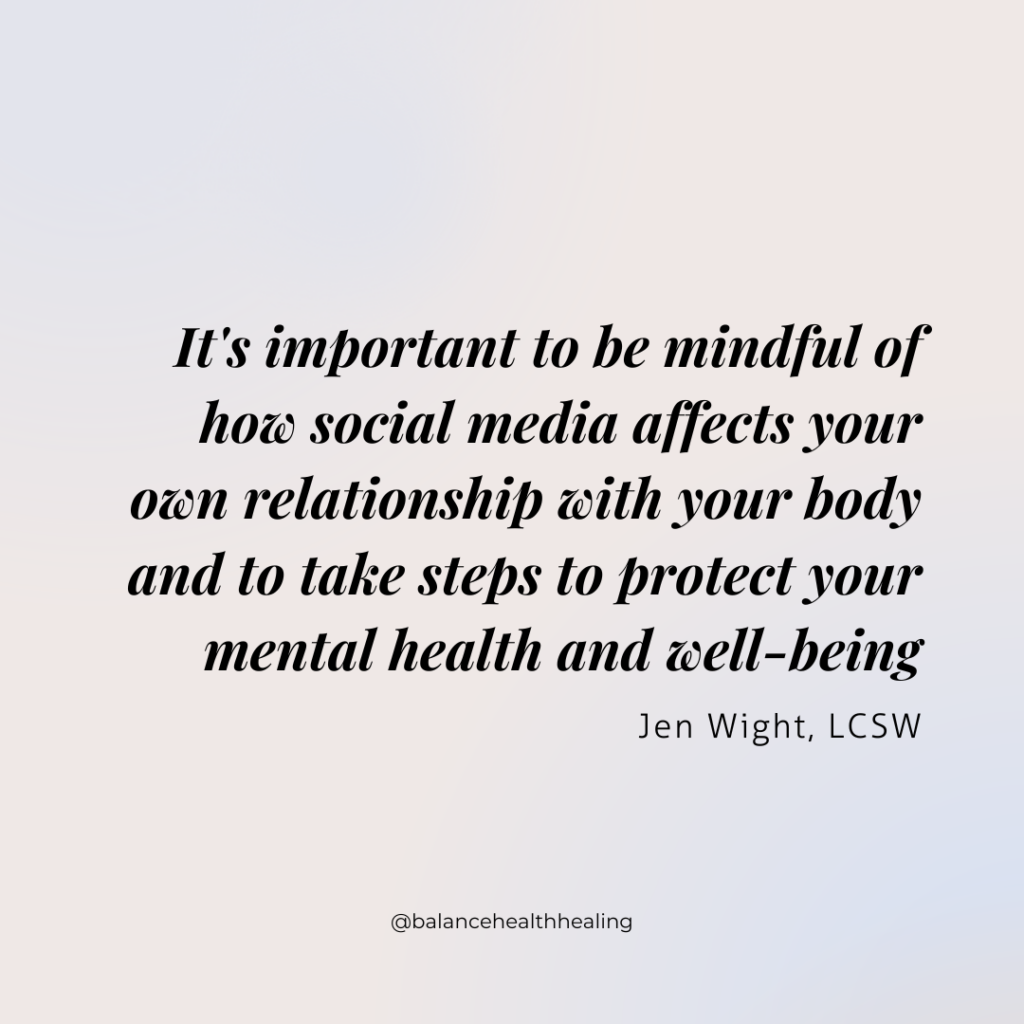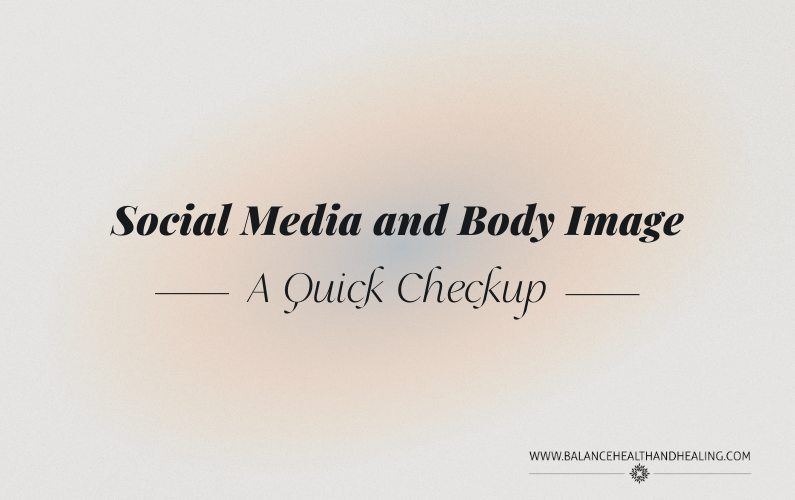In today’s world, social media is a big part of connecting and communicating with others. While it can be a helpful tool for those purposes, when left unchecked, social media can become problematic to our well-being. Here are a few areas to quickly check-in and determine how healthy your relationship is with your social media platforms!
Comparison:
Do you often find yourself thinking about how you compare or measure up to what you are viewing on social media?
Social media platforms often present an idealized and curated version of other people’s lives, including their appearance. This can create a sense of pressure to measure up to these standards, leading to negative feelings about your own body. Constantly comparing yourself to others on social media can create a wide range of challenges- from fostering feelings of envy, inadequacy, and low self-esteem to inspiring disordered eating.
 Filters and editing:
Filters and editing:
Do you feel comfortable posting unedited, unfiltered images of yourself online? Why or why not?
When viewing images of others, are you allowing yourself to consider how those images may have been edited and filtered?
Social media provides access to numerous filters and editing tools that allow people to alter their appearance, often beyond recognition. Seeing others post photos that have been heavily edited or filtered can create unrealistic beauty standards and make people feel like they need to change their own appearance to be more attractive or desirable.
Body shaming and criticism:
Are the communities you are interacting with online full of kindness and support, or are they critical and aggressive?
What is your reaction when you see comments shaming bodies?
Unfortunately, social media can also be a breeding ground for negative comments about people’s bodies. This can come in the form of direct criticism, such as fat shaming or body shaming, or more subtle comments that still perpetuate harmful beauty standards. These comments can be hurtful and contribute to negative feelings about your own body.
Perfectionism:
After you have been online for a little bit, bring your awareness to how judgemental you are feeling about yourself. Do you find yourself feeling inadequate? Like you are not good enough?
Have you noticed an increase in perfectionistic tendencies as your time on social media increases?
Social media can also promote a culture of perfectionism, where people feel like they need to present a flawless version of themselves to the world. This can lead to a focus on appearance as a key part of your identity and self-worth, which can be damaging to your relationship with their body.
It’s important to be mindful of how social media affects your own relationship with your body and to take steps to protect your mental health and well-being.

